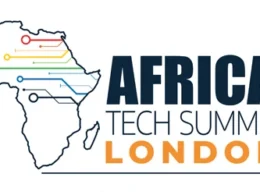On Tuesday, November 18, 2025, Google unleashed Gemini 3, its most advanced AI model yet, in what represents the company’s most confident—and aggressive—product launch since the generative AI wars began.
Unlike previous Gemini releases that trickled into Google’s ecosystem over weeks or months, Gemini 3 went live immediately across Google Search, the Gemini app, AI Studio, Vertex AI, and enterprise products—reaching billions of users from minute one. For the first time ever, Google embedded its latest frontier model into Search on launch day, a deployment speed that signals both technical confidence and competitive urgency.
“This is the very first time we’re shipping our latest Gemini model in search,” Robby Stein, VP of product for Google Search, told the press during a preview briefing.
The launch comes just seven months after Gemini 2.5, less than a week after OpenAI dropped GPT-5.1, and two months after Anthropic released Claude Sonnet 4.5—a reminder that frontier AI development now moves at blistering, almost absurd speed.
The Benchmarks: Topping Every Leaderboard That Matters
Google didn’t just release Gemini 3—it came armed with receipts. The model scored 37.4% on Humanity’s Last Exam, a benchmark designed to test PhD-level reasoning across diverse domains. That crushes the previous record of 31.64% held by GPT-5 Pro.
On LMArena, the human-evaluation benchmark measuring user satisfaction, Gemini 3 Pro claimed the top spot with an Elo rating of 1501, surpassing its predecessor Gemini 2.5 Pro (1451) and every competing model.
The numbers continue across virtually every major benchmark:
- 91.9% on GPQA Diamond (graduate-level scientific reasoning)
- 81% on MMMU-Pro (multimodal understanding)
- 87.6% on Video-MMMU (video comprehension)
- 23.4% on MathArena Apex (advanced mathematics)
- 1487 Elo on WebDev Arena (coding capabilities)
“With Gemini 3, we’re seeing this massive jump in reasoning,” said Tulsee Doshi, Google’s head of product for the Gemini model.
For context, these aren’t marginal improvements. Gemini 3 doesn’t edge past competitors—it establishes commanding leads on benchmarks that matter for real-world applications.
Deep Think Mode: When Pro Isn’t Enough
Beyond Gemini 3 Pro—available immediately to users—Google announced Gemini 3 Deep Think, a more research-intensive version optimized for even harder reasoning tasks. Deep Think pushes scores even higher:
- 41.0% on Humanity’s Last Exam (without tools)
- 93.8% on GPQA Diamond
- 45.1% on ARC-AGI with code execution—a benchmark designed to test novel problem-solving ability
Deep Think will roll out to Google AI Ultra subscribers in coming weeks after additional safety testing. The phased approach suggests Google learned from past controversies—the original Gemini launch in December 2023 triggered intense backlash over “woke” outputs and inaccurate image generation, while AI Overviews famously told users to eat glue and rocks.
This time, Google appears determined not to stumble.
Generative Interfaces: AI That Builds Its Own UI
Perhaps Gemini 3’s most striking capability is what Google calls “generative interfaces”—the ability to create not just content but entire user experiences on demand.
Ask Gemini 3 to “create a Van Gogh gallery with life context for each piece,” and instead of returning text, it generates a magazine-style visual layout with images, interactive elements, and contextual information organized like a curated website.
Request travel recommendations, and Gemini might spin up a custom interface with modules, images, booking widgets, and follow-up prompts—all generated in real-time based on your query.
This represents a fundamental shift from conversational AI to what the industry calls “vibe coding”—users describe outcomes in plain language, and the model assembles the interface or code needed to deliver them.
“The agent can work with your editor, across your terminal, across your browser to make sure that it helps you build that application in the best way possible,” said Koray Kavukcuoglu, DeepMind CTO.
For publishers and content creators, this evolution is terrifying. If Google can generate complete, interactive experiences answering user queries, who needs to click through to actual websites?
Google Antigravity: The Coding IDE Nobody Expected
Alongside Gemini 3, Google dropped Google Antigravity—a new agentic development platform that combines a ChatGPT-style prompt window with a command-line interface and browser preview pane.
The tool enables what Google calls “multi-pane agentic coding,” similar to platforms like Warp or Cursor 2.0, allowing developers to describe high-level tasks and let AI agents handle implementation details across multiple tools simultaneously.
“Gemini 3 is the company’s ‘best vibe coding model ever,'” Josh Woodward, VP of Google Labs and Gemini, told reporters.
Available immediately on Mac, Windows, and Linux, Antigravity uses Gemini 3, Gemini 2.5 Computer Use, and Nano Banana to enable agents that can “autonomously plan and execute complex, end-to-end software tasks simultaneously” while validating their own code.
For developers already using AI coding assistants, Antigravity represents Google’s entry into a rapidly evolving market where AI doesn’t just autocomplete code—it architects entire features from natural language descriptions.
Gemini Agent: The Universal Assistant Gets Real
Google also unveiled Gemini Agent, an experimental feature designed to handle multi-step tasks directly inside the Gemini app. Once granted permissions, the agent can access Google Calendar, Gmail, and Reminders to execute complex workflows like organizing inboxes or managing schedules.
The agent breaks tasks into discrete steps, displays progress in real-time, and pauses for user approval before continuing—addressing the trust and control concerns that plague fully autonomous agents.
“We think of this as a step toward ‘a true generalist agent,'” Google said in materials provided to press.
The feature launches November 18 for Google AI Ultra subscribers in the US, with broader rollout planned based on safety testing outcomes and user feedback.
Gemini Agent brings Google closer to DeepMind CEO Demis Hassabis’s vision for a “universal assistant”—internally referred to as AlphaAssist—that Reuters previously reported on. The question isn’t whether Google can build such systems; it’s whether users will trust them with increasingly consequential tasks.
The Distribution Blitz
What makes Gemini 3’s launch remarkable isn’t just the technology—it’s the deployment scale. From day one, the model powers:
Google Search: AI Mode and AI Overviews now run on Gemini 3, affecting billions of monthly queries. This marks the fastest-ever deployment of a new model into Google’s most-used product.
Gemini App: 650 million monthly active users immediately access Gemini 3 Pro by selecting “Thinking” from the model dropdown. The app also received a redesign with a “My Stuff” folder for managing generated content.
Developer Tools: Gemini API, Google AI Studio, and Vertex AI provide immediate access for the 13 million developers using Gemini in their workflows.
Enterprise Products: Gemini Code Assist, Gemini CLI, and Workspace integrations (Gmail, Docs, Sheets, Slides) receive Gemini 3 upgrades enabling smarter context understanding and improved workflow automation.
Carrier Partnerships: In India, Reliance Jio bundled free Gemini 3 access for 18 months to all Unlimited 5G subscribers—valued at approximately ₹35,100 (~$420)—giving Google aggressive distribution in one of the world’s largest markets.
This sweeping day-one rollout contrasts sharply with past launches where new models took weeks or months to reach Google’s core products.
“We think Gemini has set quite a new pace in terms of both releasing the models, but also getting it to people faster than ever before,” Kavukcuoglu told reporters.
The Competitive Context: Keeping Pace Gets Harder
Gemini 3 arrives in an AI landscape moving faster than anyone predicted even a year ago.
OpenAI released GPT-5 in August 2024, then dropped GPT-5.1 updates just last week—one version “warmer, more intelligent, and better at following instructions,” another “faster on simple tasks, more persistent on complex ones.”
Anthropic launched Claude Sonnet 4.5 in September, setting new standards for coding and analysis tasks while maintaining strong safety profiles.
xAI’s Grok 4 continues iterating with Elon Musk’s characteristic speed-over-caution approach.
The AI race has evolved beyond simply shipping models to integrating them into products that generate revenue. Wall Street increasingly watches for signs that massive AI investments—Google announced a $90 billion data center expansion in South Carolina—will translate into profits rather than just benchmark victories.
Alphabet’s stock has been buoyed this year largely by AI offerings from its cloud computing division. Gemini 3’s immediate integration into revenue-generating products like Search and enterprise tools signals Google recognizes the market cares more about monetization than model cards.
The Style Shift: “Genuine Insight” Over Flattery
Google emphasized that Gemini 3 represents more than capability upgrades—it’s a personality shift.
“AI responses powered by Gemini 3 will be ‘trading cliché and flattery for genuine insight—telling you what you need to hear, not what you want to hear,'” according to Demis Hassabis, DeepMind CEO.
This addresses growing criticism that AI chatbots have become too sycophantic—praising mediocre work, agreeing with flawed reasoning, and prioritizing user happiness over accuracy.
Gemini 3 Pro responses aim to be “smart, concise, and direct,” acting as “a true thought partner” rather than an obsequious assistant that reflexively validates everything users say.
Whether users actually prefer blunt honesty over cheerful affirmation remains to be seen. Consumer AI products have largely optimized for engagement and satisfaction—qualities that don’t always align with brutal truthfulness.
What’s Missing: The Questions Google Didn’t Answer
Despite comprehensive launch materials, several questions remain:
Training data cutoff: When does Gemini 3’s knowledge end? Google didn’t specify.
Compute costs: What does running Gemini 3 at Google Search scale actually cost? Margins matter for monetization.
Safety incidents: Deep Think mode awaits “further safety testing”—what risks were discovered during internal evaluation?
Benchmark contamination: With models now explicitly trained on benchmark performance, how reliable are these scores for predicting real-world capability?
Revenue impact: Will Gemini 3’s generative interfaces decrease or increase Search ad revenue as users get answers without clicking through to websites?
Partner economics: How much is Google paying Jio and other carriers for distribution deals providing “free” Gemini access?
Google’s press materials focused heavily on capabilities and deployment—understandably, given those are the sexy parts. But the economics, safety trade-offs, and business model evolution matter just as much for understanding where this technology leads.
The Redemption Arc?
For Google, Gemini 3 represents more than a product launch—it’s a statement that the company has reclaimed AI leadership after a rocky few years.
The original Bard launch was widely mocked. Early Gemini versions faced intense criticism. AI Overviews became internet punchlines. For a company that invented the Transformer architecture underlying modern AI, Google appeared to be losing the race it helped start.
“There’s sort of this feeling that Google, which kind of struggled in AI for a couple of years there…and I think they were seen as sort of catching up to the state of the art,” Kevin Roose noted on the Hard Fork podcast. “And now the question is: is this them taking their crown back?”
The benchmark leads suggest technical superiority. The aggressive rollout demonstrates operational confidence. The developer enthusiasm—Android Authority’s Mishaal Rahman called leaked model cards “like Santa arriving early”—indicates genuine excitement beyond marketing hype.
But sustainable AI leadership requires more than one impressive launch. It requires consistently shipping models that work reliably at scale, monetizing them effectively, navigating regulatory scrutiny, and managing safety risks without stifling innovation.
Gemini 3 gives Google a strong hand. Whether they play it well depends on what happens next—when the headlines fade and the hard work of turning frontier AI into profitable, trustworthy products continues.
How to Access Gemini 3 Today
For consumers:
- Visit gemini.google.com or use the Gemini mobile app
- Select “Thinking” from the model dropdown to access Gemini 3 Pro
- Google AI Plus, Pro, and Ultra subscribers get higher usage limits
- Deep Think mode coming soon for Ultra subscribers
For developers:
- Access via Gemini API at ai.google.dev
- Available in Google AI Studio for experimentation
- Enterprise access through Vertex AI on Google Cloud
For Jio users in India:
- Open MyJio app and look for “Claim Now” banner
- Activate 18-month free Gemini 3 access included with Unlimited 5G plans
Pricing:
Enterprise pricing through Vertex AI varies by usage
Free tier available with usage limits
Google AI Plus: Extended from free trial in US
Google AI Pro: Standard subscription tier
Google AI Ultra: Premium tier with Deep Think access (coming soon)












